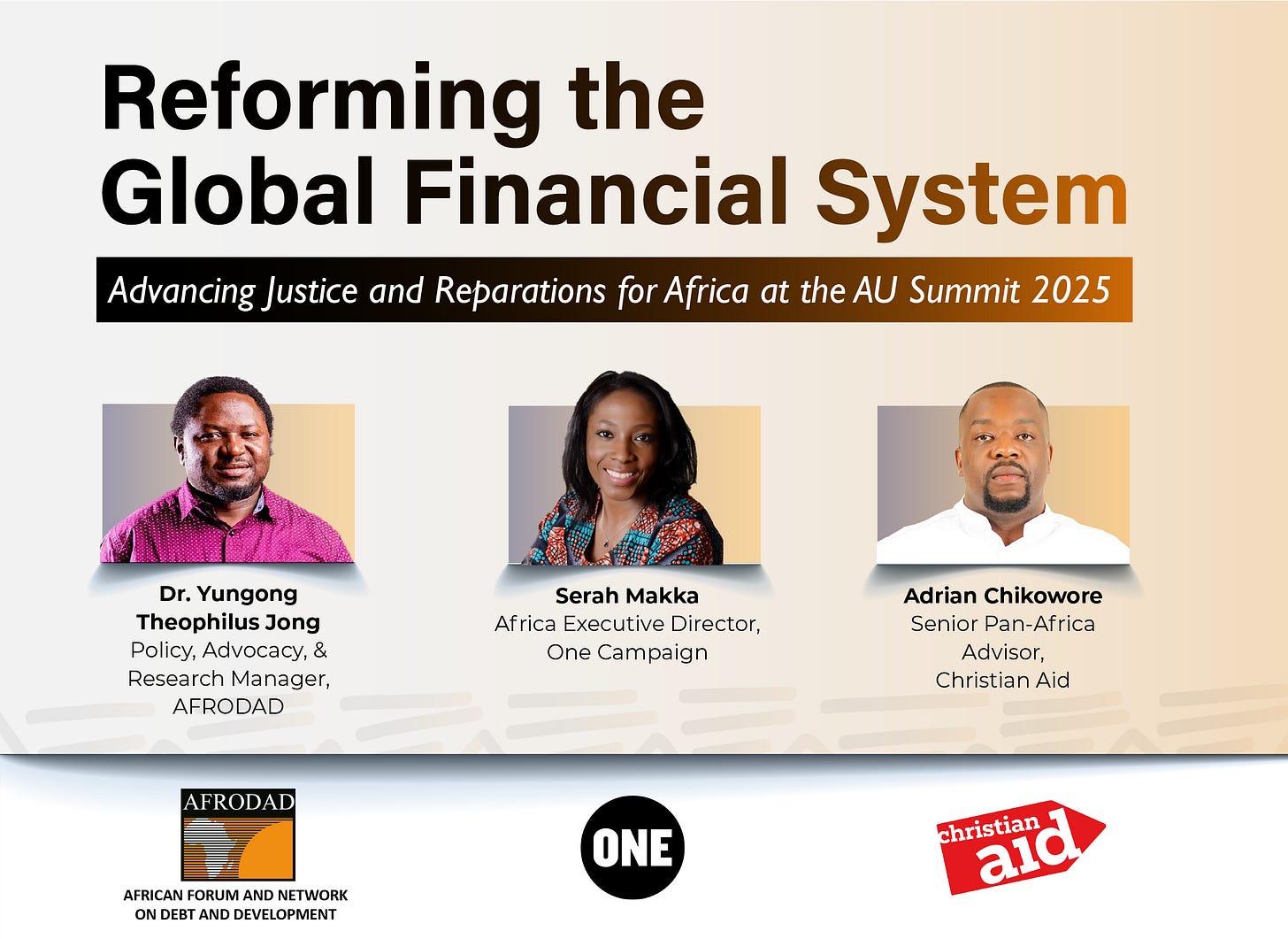Africa's Financial Reform Hinges on Media Role, Experts Say
Twenty-five African nations currently spend more on debt servicing than on healthcare and education combined, according to figures presented during the briefing.
ADDIS ABABA, Ethiopia— The success of Africa's push to reform the global financial system depends heavily on media organizations' ability to explain complex economic issues to citizens and pressure political leaders, experts said Wednesday during a virtual press briefing, writes Winston Mwale.
The online event, organized by AFRODAD, ONE Campaign, and Christian Aid ahead of next week's African Union summit, brought together three policy experts who outlined how media coverage could drive citizen engagement and hold leaders accountable for financial reforms.
"The media sits in the fulcrum between citizens and leaders," said Serah Makka, Africa Executive Director at the ONE Campaign.
"What we find on the continent sometimes is our leaders will cannibalize those institutions. So the institutions that should have some independence to check the leaders are really in the leaders' pocket."
Makka emphasized that citizen pressure, informed by media coverage, remains the strongest check on government power.
"We can never have citizens' voices until they understand the issues. They can never understand the issues until media explains and brings awareness to issues, whether by radio, social media, text or all the mediums of media," she said.
Adrian Chikowore, Senior Pan-Africa Advisor at Christian Aid, pointed to specific initiatives aimed at improving financial journalism across the continent.
He cited the AfroMed Initiative, which focuses on training journalists to better report on business and financial issues.
"The media is the gateway to ensuring that Africans understand the issues that are troubling the continent," Chikowore said.
He noted that while social media has improved information access, fact-based reporting remains crucial to counter misinformation.
"When governments ultimately fail, then we pass the relay button to the citizens," said Dr. Yungong Theophilus Jong, Policy Manager at AFRODAD.
"When governments fail to listen to our voices as civil society, the next line of action is with the citizens to make their decisions regarding who should be in a a position of power."
The experts addressed several challenges facing African media organizations.
These include limited access to electricity in some regions, which affects broadcast reach, and the need to maintain accurate reporting standards amid the rise of social media platforms.
Traditional newspaper coverage remains particularly important for reaching political leaders, according to Makka.
"Our presidents are usually reading a newspaper," she said.
"To the extent that a story makes it on a paper that they read day in, day out saying you did this well or you didn't do this well, it catches the attention and puts their feet to the fire."
The discussion on the media's role came as part of a broader conversation about reforming global financial institutions that experts say disadvantage African nations.
The current system, established during the colonial era, requires significant changes to address inequities in capital access and debt servicing, speakers said.
Chikowore highlighted how media coverage could help citizens understand these complex financial structures.
"We need factual information," he said, noting that distorted information could undermine Africa's position as a "rulemaker" in global financial discussions.
The experts emphasized three key elements for societal development: government leadership, strong institutions, and citizen voices.
They identified media organizations as crucial for strengthening the latter two components.
"My strong hypothesis is that Africa does not arise to the place she needs to arise without the media doing the work the media should do," Makka said.
The briefing also addressed broader issues of financial reform, including the role of regional institutions like the African Union, the development of an African Credit Rating Agency, and the continent's participation in BRICS (Brazil, Russia, India, China, and South Africa).
Chikowore noted ongoing efforts to strengthen continental institutions, including the Pan-African Parliament and the African Peer Review Mechanism.
These organisations, he said, could help ensure countries move in a coordinated direction on financial reforms.
The virtual briefing preceded next week's African Union summit, where leaders are expected to discuss reforms to global financial institutions and measures to reduce the continent's debt burden.
Twenty-five African nations currently spend more on debt servicing than on healthcare and education combined, according to figures presented during the briefing.
The experts concluded by calling for increased support for journalism training programs and better resources for media organisations covering financial issues.
They emphasised that accurate, accessible reporting on economic matters would be crucial for building public support for financial reforms.
Citizen Television's Yvonne Okwara moderated the virtual press briefing, which drew participants from across the continent.




